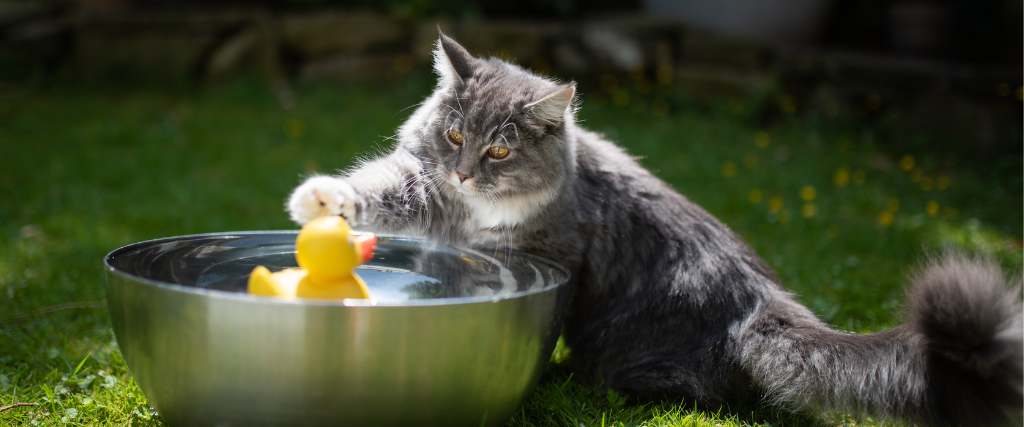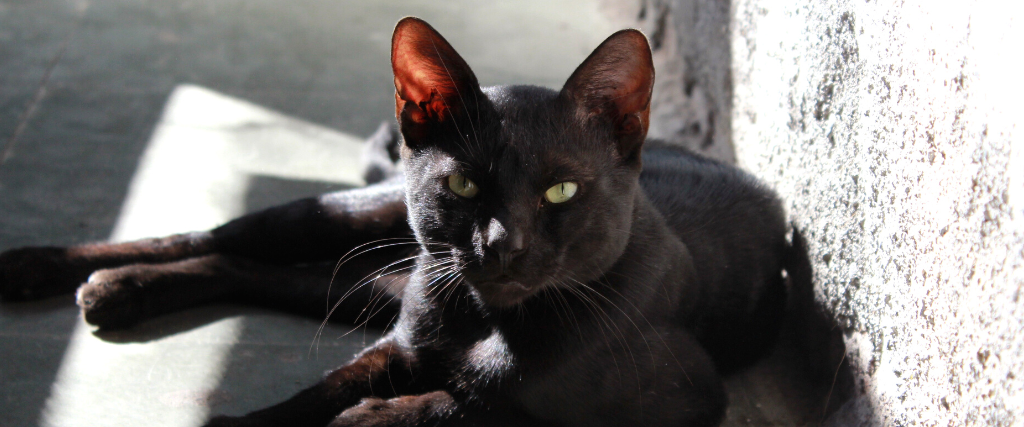Cats are mysterious creatures, so it comes as no surprise that many myths exist in an attempt to explain their habits and personalities. However, cat owners must be able to distinguish fact from fiction so they dont put their cats in harms way. In honor of National Cat Day on Saturday, November 29, the following are the six most common myths about cats and the truth behind them.
1. Cats Hate Water
While its true cats arent big fans of water, that doesnt apply to all of them. YouTube has plenty of cat videos showing them swimming and playing in puddles. However, cats have plenty of reasons not to enjoy being wet. Their thick coats dont dry quickly, leaving them feeling heavy, uncomfortable, and cold. This diminishes their trademark agility and escaping perceived danger as quickly. When it comes to cats and water, its also important to remember their ancestry. Cats descendants are from desert areas with little-to-no rainfall; therefore, water wasnt an everyday luxury in their lives. The ASPCA offers advice on how to bathe your cat when needed.
2. Cats Always Land on their Feet
Cats possess a righting reflex that allows them to twist quickly and manipulate their bodies when falling. Their ultra-flexible backbones also contribute to this process. However, they dont always land on their feet and can get hurt from falling. Veterinarians consistently see cats that have fallen from great heights, such as windows, and were injured. Purina explains the righting reflex in more detail.

3. Cats Have Nine Lives
This is one cat myth we wish was true, so our felines could stay with us longer. One theory of this myths origins dates back to ancient Egyptian times. Worshiped as sacred creatures, cats were thought to possess supernatural powers and could conquer anything including death. Another theory points to an old proverb, A cat has nine lives. For three he plays, for three he strays, and for the last three he stays. However, veterinarians believe this myth comes from cats extreme agility and ability to get themselves out of the stickiest of situations. They can survive significant falls, defend themselves, jump to heights to avoid dangers, and moreearning them a survivalist reputation.
4. Cats Can See in Complete Darkness
Cats arent able to see in complete darkness any better than humans. However, due to their thinner corneas and irises, they adapt better than humans in low light. They also have extra rods in their retinas and a highly-developed reflective area in the back of their eyes, which allows them to amplify light. These features are the same features that make their eyes glow at night.

5. Cats Like to be Alone
This is true as it relates to other cats in the home but not when it comes to their owners or lifelong littermates. Adult cats prefer to be the only feline living in their immediate environment. When introducing a new cat to the home, they often go to great lengths to position themselves as the dominant cat. This can include commandeering the litter box, eating the new cats food, and hoarding toys. However, cats can be social with other felines, especially if theyve been together since birth. Domesticated cats, while solitary creatures, form close bonds with their human owners. They enjoy the companionship of their families and can even experience separation anxiety.
6. Black Cats are Bad Luck
In the spirit of Halloween right around the corner, the centuries-old myth that black cats are bad luck had to make our list. This is both a myth and a superstition that changes depending on your country. In Japan, a black cat crossing your path is good luck, while its bad luck in the U.S. and Europe. In Germany, a black cat crossing your path is unlucky if they walk right to leftwhile left to right means good times are ahead. In Italy, a black cat jumping onto the bed of a sick person means death is near. For the Scottish, a black cat on your doorstep is a sign of prosperity coming, while in China, this means poverty is your destiny. Unfortunately, this stubborn myth makes it hard to rehome black cats or get them adopted from shelters.
If you have questions about your cats habits, lifestyle or personality, skip Google and ask your veterinarian instead. While some myths are fun and innocent, believing others can put your cat at risk. Contact us to learn more about cat myths and the reality.
